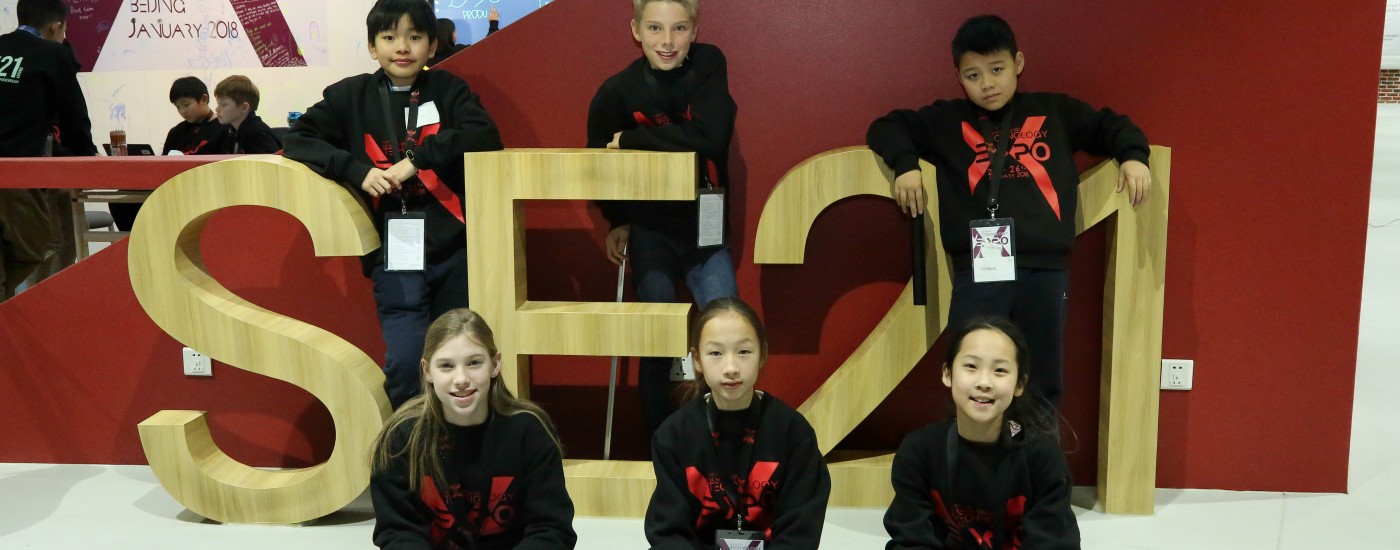- Home
- Dulwich Life
- STEAM/SE21 at DULWICH

Dulwich College Shanghai Puxi Junior School students recently participated in a very special Tech Expo, held at our Dulwich Beijing campus, to mark the launch of SE21.
SE21 is a new initiative for all students at Dulwich campuses – the “S” stands for STEAM (Science, Tech, Engineering, Art and Maths), the “E” for Entrepreneurship and the 21 for a 21st century educational agenda. It also happens to be the London postcode for our founding school, Dulwich College.
During their time together with fellow students from Beijing and other Dulwich international campuses, our Junior School students explored virtual reality, tested F1 Racing on Dulwich Beijing’s race track and collaborated creatively to design, create and advertise their own brands of all natural food products. Innovation and entrepreneurship was high on the agenda.
Dulwich’s Director of Quality Assurance, Mr Craig Davis asserts the extreme importance of STEAM in the Dulwich Curriculum:
"Looking forward, we already know that business leaders are crying out for people who can transfer their skills and move between disciplines and while these can be delivered through STEAM project based learning and design thinking, there is also equal value in ensuring Arts activities are offered as part of the same agenda. STEAM aims to capture the elements of a student’s experience that link to the skills and dispositions that they will need beyond school and university. Students increasingly want practical experiences and projects that produce something, a shift from the head to the hand."
"STEAM is about interdisciplinary connections, collaboration and a stronger focus on the experiential - it’s also about developing student dispositions and skills rather than simply content and knowledge (though these are clearly still important). STEAM is a whole school agenda, not specific to any age. STEAM is an umbrella term for a number of different things that our students are already doing to develop these 21st Century skills. This not only ties into computer simulations, such as Minecraft, where primary school students build virtual realities, do basic coding and think through philosophy, but also to the Outdoor Learning programme in Early Years, and the design of those spaces."





